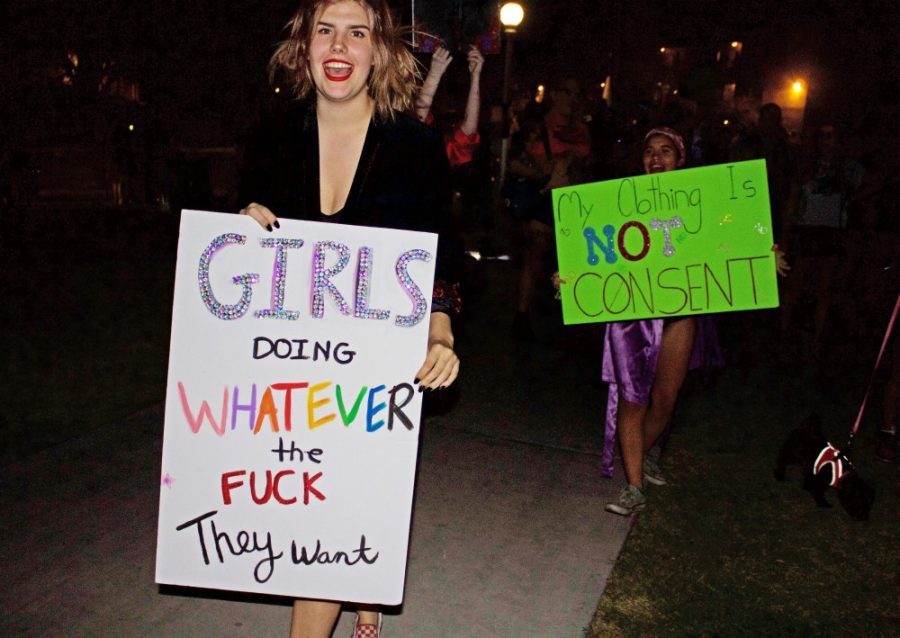A protestor holds up their sign at the 2017 SlutWalk, an annual event that protests against rape culture and sexual harassment.
Growing up alongside my brothers, I realized that I was treated differently than they were. There were different sets of rules that I had to follow — mine were more strict while they received a lot more leniency. It would most often show through curfews and outings. My brothers could go out and hang with their friends until late at night. I had a stricter set of rules than they did. I was not allowed to leave the house after the sun went down, if I went out before then, I had to be back by 8 p.m. I couldn’t hang out with boys, and I certainly couldn’t have any sleepovers at my friends’ houses. As a kid, I never understood why. I always thought that it was unfair that they treated me like this when my brothers had so much freedom.
As I got older, I realized that it was because I was a girl. They were scared that I would get kidnapped, raped or even killed. They weren’t being mean, they were only concerned for my well-being. Things have not changed much now that I’m an adult. I live in my own apartment, and I have my own rules which are much less strict, but I will always have to deal with the fact that I am a woman living in a city with a high crime rate. Tucson is considered one of the most dangerous cities in the United States. This is because, in 2017, Tucson’s violent crime rate was 802 per 100,000 people. In 2017, the national average violent crime rate was 383 per 100,000 people.
My parents were not happy about me moving to Tucson, so they made sure that my brothers were near me and that I always carried pepper spray. I make sure that I never walk anywhere alone. I am always alert and aware of my surroundings to make sure that no one is following me, and my location is always on my phone so my friends and family can find me. While anyone can be a victim of a crime, there is a much higher chance of being kidnapped, raped or sexually assaulted as a woman. Especially a woman alone. In Arizona, there is also a sex trafficking problem. Traffickers are known for different tactics to kidnap women and children.
Not only do we have to deal with possible sex trafficking, even on campus there are times where we do not feel safe. A friend of mine, whose story is all too common, explained that last school year before the pandemic hit, she was scared for her life because a man had followed her from her lab back to her dorm. She had to report that she had seen this man multiple times and was suspicious that he was stalking her. Many women and other feminine-presenting people feel like they must worry about the possibility of being assaulted or raped. In 2015, a survey was conducted over a three-week period at 27 different universities. Out of 150,072 students, 23.1% of all undergraduate women experienced completed or attempted sexual assault. This accurately displays the commonly referred to statistic that “one in five women in the United States have been raped at some time in their lives.”
In Arizona, 3,201 rapes were reported in 2018, although this statistic does not include the ones that were never reported. Many rapes go unreported due to fear, blackmail and other reasons. Only 230 out of every 1,000 sexual assaults are reported to the police. Around only 20% of female college students report their rape.
RELATED: Exploring Title IX and campus sexual assault through film
Sexual assault, stalking and sex trafficking are all things that women face daily. Most women are always on edge if they are out alone and feel uncomfortable around certain people, but they do not speak up because we have been taught that this is normal. Being a girl or feminine-presenting means always being alert and aware. It is not right that we are taught to just deal with this fear and constant threat and that if something does happen, we just weren’t careful enough.
Follow Andrea Moreno on Twitter

Andrea (she/her) is a freshman law major. She likes to listen to audiobooks and game in her free time.









